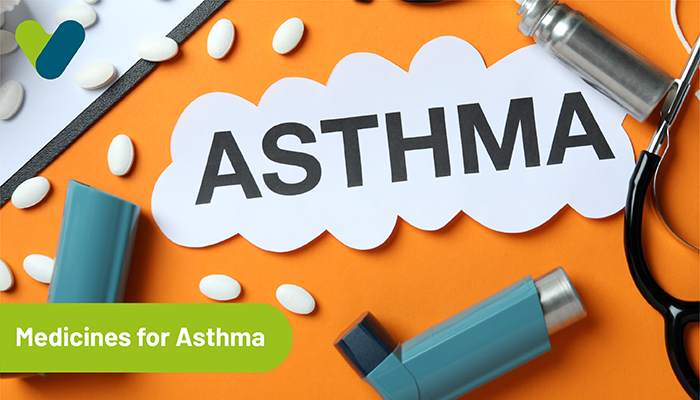Asthma is a condition in which airways get swollen and constricted, which leads to the creation of excess mucus. The condition can make it difficult to breathe and cause coughing, wheezing, and shortness of breath. Your doctor will evaluate your medical history and your family's medical history, to develop a suitable medication course. For the most suitable plan. It is mandatory for you to disclose your history of allergies, eczema, and lung disorders, if any. They will consider your age, the symptoms you are experiencing, the triggers, and what eases the symptoms to determine the best drugs for you. Long-term drugs: Long-term preventative medicines minimise airway inflammation and discomfort. Inhalers or bronchodilators administer medications open inflamed airways to improve breathing to prevent asthma episodes. Asthma therapy centres on regular, long-term treatments and anti-asthmatic drugs, which reduce asthma attacks.
- Inhaled meds: Inhaled corticosteroids comprise fluticasone propionate, budesonide, among others. The drugs may take days or weeks to work effectively. Inhaled corticosteroids have fewer negative effects than oral corticosteroids.
- Oral Medicines: Oral medicine or a tablet for asthma like leukotriene modifier include montelukast and zileuton, which may have side-effects. Thus, your specialist can prescribe the appropriate course based on your medical history.
- Mix-inhalers: The drug group includes fluticasone-salmeterol, budesonide-formoterol, formoterol-mometasone, among others. For treating asthma attacks, doctors prescribe quick-relief drugs as needed and may also prescribe using them before exercising.
Medicine for Asthma
Doctors use quick relief or rescue drugs to relieve asthma symptoms faster. Using your quick-relief inhaler may not be necessary if your long-term medications are effective. Types of quick-relief medications include:- Beta agonists. Inhaled bronchodilators relieve asthma symptoms within minutes. The med group includes albuterol and levalbuterol. The beta agonists can be administered using a portable inhaler or a nebuliser with a mouthpiece.
- Anticholinergics agents: Meds like ipratropium and tiotropium will make breathing easier and treat emphysema, chronic bronchitis, and asthma.
- Oral/IV corticosteroids. Medicines like prednisone and methylprednisolone can alleviate airway inflammation caused by acute asthma.
